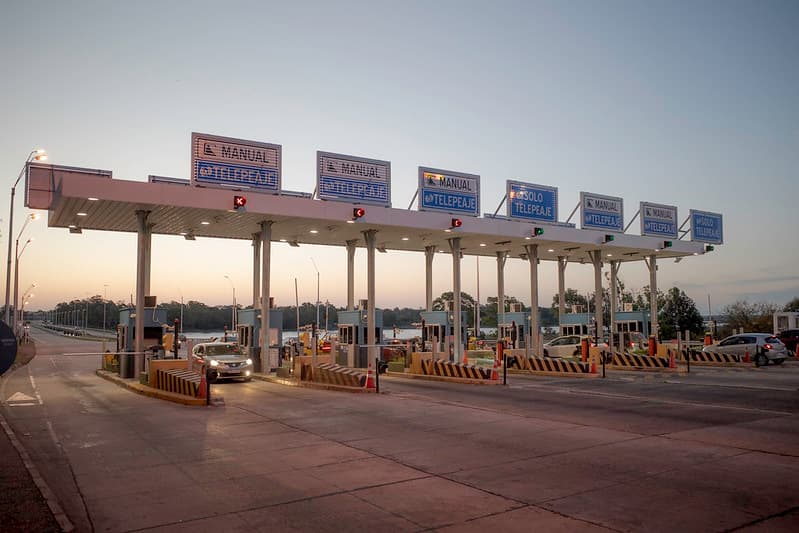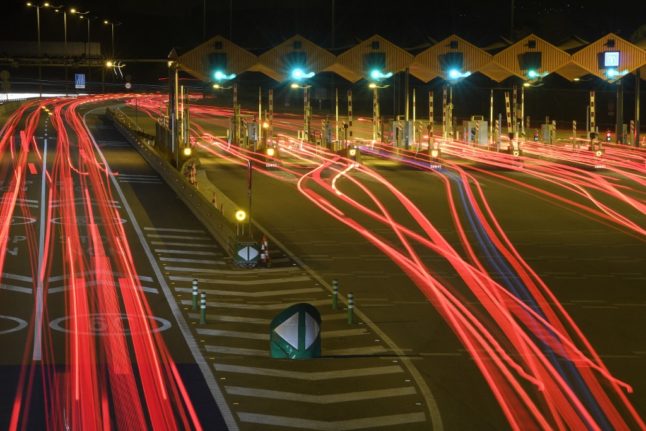Will driving in Spain soon be dominated by paying motorway tolls?

Spain is known by its European neighbours as being almost a ‘toll-free paradise’, but pressure from Brussels could mean this uncostly road utopia soon comes to an end.
What is the latest?
Spain has conceded to pressure from the EU to introduce more tolls on its roads.
The Spanish government has already drafted a project to present in Brussels in which it describes how it will introduce a toll system across its network of motorways and high-capacity roads to cover their huge maintenance costs.
This is in stark contrast to the trend in recent years where there’s been a ‘liberation’ of tolls, contributing to making Spain one of the cheapest countries in Europe in terms of road tolls.
Why the change in stance?
Even though the evidence would suggest otherwise, Spain’s national government has wanted to introduce toll systems similar to those of its EU neighbours for a couple of years now.
As things stand, Spain is one of the countries in Europe where drivers pay the least for the use of its high-capacity road network, spending 76 percent less on tolls than the average for EU countries.
This lack of funding for maintenance has caused a deficit of €8 billion for the Spanish government which it is now looking to address, however unpopular the measure.
Why now in the middle of a pandemic when Spaniards are having to tighten their belts more than ever? Well, with €140 billion in EU rescue funds recently allocated to Spain, Pedro Sánchez’s administration is no doubt feeling the pressure to keep Brussels happy.

Photo: Luis Gené/AFP
What does the plan consist of?
Spain’s ‘Recovery, Transformation and Resilience Plan’, which covers other modernisation goals other than tolls, “will review the financing of high-capacity roads and establish a payment system that guarantees the necessary funds for the conservation of Spain’s state road network", without revealing more details for the moment.
According to Spanish construction employers' association APCE, the introduction of tolls on the country’s toll-free network (14,100 kilometres) would generate €12.6 billion a year that can be fed back into public coffers.
There are also reports suggesting that one of the aims will be to reduce territorial imbalances, since there are some Spanish regions where tolls are more common than in others.
When will they start charging more tolls?
Spain’s Ministry of Transport, Mobility and Urban Planning has announced that the current ‘liberation’ of tolls on Spanish motorways will continue as planned in 2021, indicating that for this year at least many motorways in Spain will continue or become toll-free.
READ MORE: The Spanish motorway routes that will become toll-free in 2021
This has occured because several private companies handling motorway toll payments in Spain have seen some of their concessions expire, meaning that a handful of highway sections no longer require drivers to pay tolls.
How toll-free is Spain?
Currently, driving the 1,200km that separates Paris from Madrid costs €91 in tolls, €72 of which are paid in France and €19 in Spain.
Spain is one of the EU countries with the fewest high-capacity toll roads - less than 20 percent of the total - despite having one of Europe’s most extensive networks (17,000 kilometres).
A lack of funding has reportedly resulted in it also being one of the worst maintained.
Cyprus, Estonia, Iceland, Liechtenstein, Malta and Montenegro are the only European countries without tolls.
Most EU countries have various formulas to raise money from drivers and thus contribute to the maintenance and growth of road infrastructures.
They go from physical tolls with barriers, such as those installed on different motorways in Spain, to electronic tolls in Portugal and a sticker system for vehicles where toll rates are determined by how polluting the car is, which currently exists in Austria and Switzerland.
READ MORE:
Comments
See Also
What is the latest?
Spain has conceded to pressure from the EU to introduce more tolls on its roads.
The Spanish government has already drafted a project to present in Brussels in which it describes how it will introduce a toll system across its network of motorways and high-capacity roads to cover their huge maintenance costs.
This is in stark contrast to the trend in recent years where there’s been a ‘liberation’ of tolls, contributing to making Spain one of the cheapest countries in Europe in terms of road tolls.
Why the change in stance?
Even though the evidence would suggest otherwise, Spain’s national government has wanted to introduce toll systems similar to those of its EU neighbours for a couple of years now.
As things stand, Spain is one of the countries in Europe where drivers pay the least for the use of its high-capacity road network, spending 76 percent less on tolls than the average for EU countries.
This lack of funding for maintenance has caused a deficit of €8 billion for the Spanish government which it is now looking to address, however unpopular the measure.
Why now in the middle of a pandemic when Spaniards are having to tighten their belts more than ever? Well, with €140 billion in EU rescue funds recently allocated to Spain, Pedro Sánchez’s administration is no doubt feeling the pressure to keep Brussels happy.

Photo: Luis Gené/AFP
What does the plan consist of?
Spain’s ‘Recovery, Transformation and Resilience Plan’, which covers other modernisation goals other than tolls, “will review the financing of high-capacity roads and establish a payment system that guarantees the necessary funds for the conservation of Spain’s state road network", without revealing more details for the moment.
According to Spanish construction employers' association APCE, the introduction of tolls on the country’s toll-free network (14,100 kilometres) would generate €12.6 billion a year that can be fed back into public coffers.
There are also reports suggesting that one of the aims will be to reduce territorial imbalances, since there are some Spanish regions where tolls are more common than in others.
When will they start charging more tolls?
Spain’s Ministry of Transport, Mobility and Urban Planning has announced that the current ‘liberation’ of tolls on Spanish motorways will continue as planned in 2021, indicating that for this year at least many motorways in Spain will continue or become toll-free.
READ MORE: The Spanish motorway routes that will become toll-free in 2021
This has occured because several private companies handling motorway toll payments in Spain have seen some of their concessions expire, meaning that a handful of highway sections no longer require drivers to pay tolls.
How toll-free is Spain?
Currently, driving the 1,200km that separates Paris from Madrid costs €91 in tolls, €72 of which are paid in France and €19 in Spain.
Spain is one of the EU countries with the fewest high-capacity toll roads - less than 20 percent of the total - despite having one of Europe’s most extensive networks (17,000 kilometres).
A lack of funding has reportedly resulted in it also being one of the worst maintained.
Cyprus, Estonia, Iceland, Liechtenstein, Malta and Montenegro are the only European countries without tolls.
Most EU countries have various formulas to raise money from drivers and thus contribute to the maintenance and growth of road infrastructures.
They go from physical tolls with barriers, such as those installed on different motorways in Spain, to electronic tolls in Portugal and a sticker system for vehicles where toll rates are determined by how polluting the car is, which currently exists in Austria and Switzerland.
READ MORE:
Join the conversation in our comments section below. Share your own views and experience and if you have a question or suggestion for our journalists then email us at [email protected].
Please keep comments civil, constructive and on topic – and make sure to read our terms of use before getting involved.
Please log in here to leave a comment.